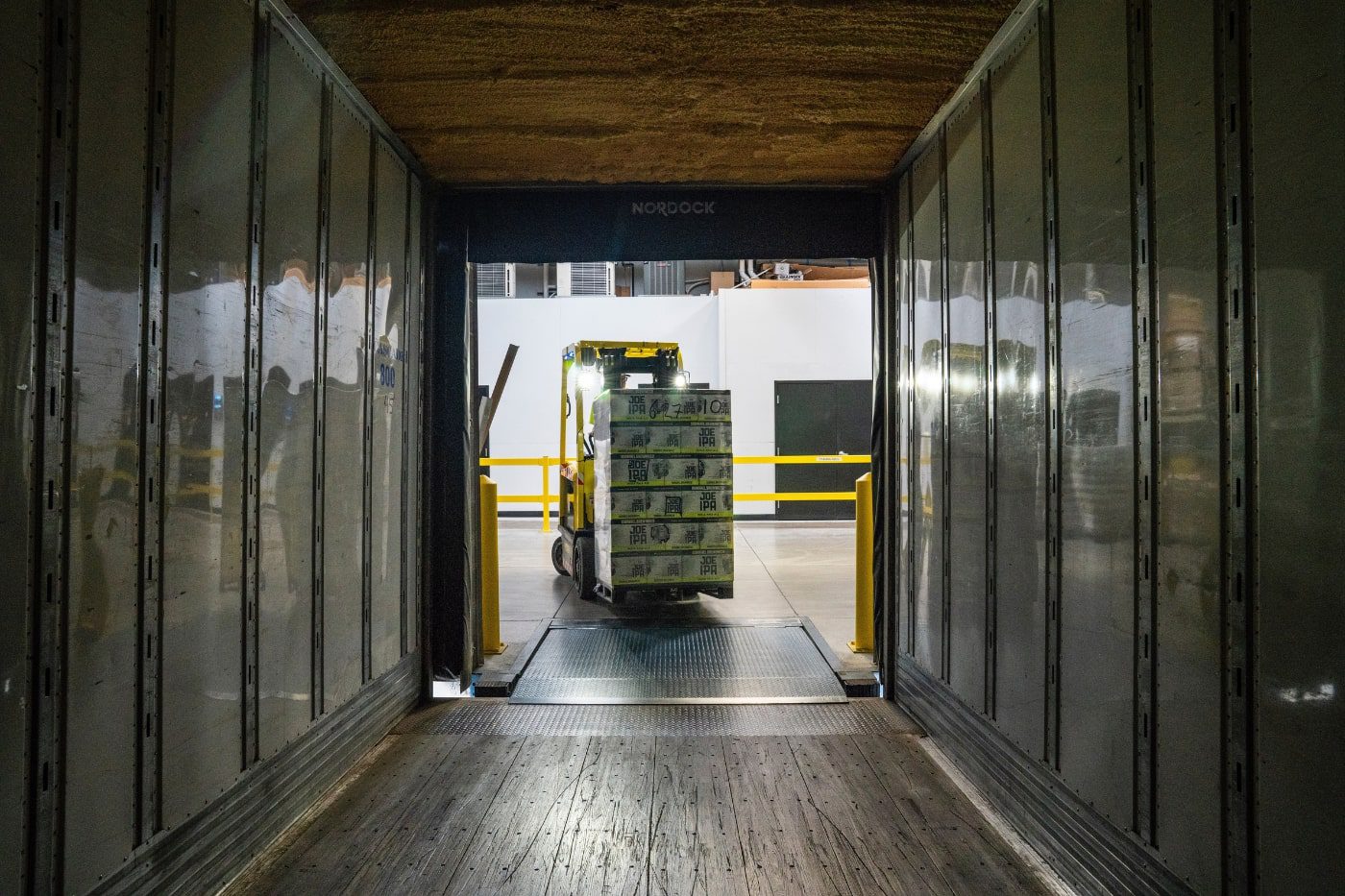In today’s complex and interconnected world of commerce, efficient transportation and logistics are essential for businesses to thrive. One key player in this intricate web is third-party logistics (3PL) transportation, which plays a vital role in ensuring the smooth flow of goods from point A to point B for many companies.
A study done by Convey revealed that almost 40% of retailers are concerned about shipping costs and time expectations from their customers. By understanding the role of carriers, organizations can make informed decisions when it comes to selecting the right partners for their logistics needs. From ensuring timely deliveries and optimizing costs to enhancing supply chain visibility, carriers have a direct impact on the overall performance and success of logistics operations.
In this article, we will delve into the fundamentals of carriers in logistics and explore why they matter in the context of 3PL transportation. We will discuss the various types of carriers commonly encountered, highlight their importance within the broader supply chain, and provide insights on how to choose the right carrier for your business.
What is a Carrier in Logistics?
In the realm of logistics, a carrier refers to an entity or company that undertakes the physical transportation of goods from one location to another. These carriers are essential players within the supply chain, as they bridge the gap between the points of origin and destination, ensuring that products reach their intended recipients in a timely and efficient manner.
The primary responsibility of a carrier in logistics is to transport goods from the shipper or manufacturer to the designated consignee. This involves the coordination of various transportation modes, such as road, rail, air, or sea, depending on the nature of the cargo and the requirements of the shipment. Carriers are equipped with the necessary infrastructure, resources, and expertise to handle the logistical complexities involved in moving goods across different geographical regions.
Beyond the physical movement of goods, carriers also perform several other vital functions within the logistics landscape. They are responsible for ensuring the safety and security of the cargo throughout the transportation process and implementing measures to protect the products from damage or theft. Carriers may also handle documentation, including bills of lading, customs forms, and other regulatory requirements, ensuring compliance with legal and administrative procedures.
Carriers play an integral role in the broader supply chain ecosystem. They act as a crucial link between manufacturers, suppliers, distributors, and end customers, facilitating the flow of goods across the various stages of the supply chain. By efficiently transporting goods, carriers enable businesses to meet customer demand, maintain inventory levels, and fulfill orders in a timely manner. Their ability to navigate transportation networks and optimize routes contributes to cost-effective operations and streamlined logistics processes.
Types of Carriers
There are two main types of carriers in logistics: common carriers and contract carriers. Each type has unique characteristics and advantages, and the choice between them depends on various factors, such as the nature of the cargo, distance, and specific transportation requirements.

Common carriers
Common carriers are transportation companies that offer their services to the general public. They operate on a for-hire basis and typically have a predetermined schedule and set routes. Common carriers provide transportation services to multiple shippers and are regulated by transportation authorities to ensure fair and non-discriminatory access. An example of a common carrier would include companies such as FedEx or USPS.
One of the primary advantages of utilizing common carriers is their accessibility. They are readily available to transport goods for any shipper or consignee without the need for long-term contracts. Common carriers often have established networks and infrastructure, allowing them to offer widespread coverage and frequent departures. This makes them suitable for small to medium-sized businesses or those with sporadic shipping needs.
Furthermore, common carriers offer flexibility in terms of cargo volume. They can accommodate both less-than-truckload (LTL) and full-truckload (FTL) shipments, making them suitable for businesses with varying shipping requirements. Their established routes and regular schedules can also result in cost efficiencies, as they can consolidate shipments from multiple customers, reducing overall transportation expenses.
Contract carriers
Contract carriers, on the other hand, work under specific contracts with individual shippers or businesses. Unlike common carriers, contract carriers do not offer their services to the general public. Instead, they operate on a dedicated basis, serving the transportation needs of a particular customer or a select group of customers.
Contract carriers provide several advantages, particularly for businesses with consistent or specialized shipping requirements. The primary advantage is the ability to customize transportation services based on specific needs. Contract carriers work closely with their customers to develop tailored solutions, such as dedicated equipment, specialized handling, or unique delivery requirements. This level of customization often leads to enhanced service quality and customer satisfaction.
Since they operate under long-term agreements, contract carriers also offer greater reliability and consistency. They prioritize the needs of their contracted customers and provide dedicated resources to fulfill transportation obligations. This can result in improved on-time performance, reduced transit times, and enhanced visibility throughout the shipping process.
The choice between common carriers and contract carriers depends on several factors. For businesses shipping smaller quantities or with sporadic shipping needs, common carriers offer accessibility, flexibility, and cost advantages. Conversely, businesses with consistent shipping volumes, specialized requirements, or a need for dedicated resources may find contract carriers more suitable for their operations.
Additionally, the nature of the cargo plays a role in carrier selection. For example, temperature-sensitive goods may require carriers with specialized equipment or expertise, such as refrigerated trucking or air cargo carriers with temperature-controlled facilities. Similarly, the distance of transportation and the required transit time may influence the choice of carriers, as some carriers may have better coverage or faster delivery options for specific regions or long-haul routes.
Importance of Carriers in Logistics
Carriers play a crucial role in the intricate web of logistics, ensuring the smooth flow of goods within the supply chain. Their importance extends beyond simply moving products from one location to another. Let’s explore how carriers contribute to timely deliveries, reduced transportation costs, and customer satisfaction while examining the impact of carrier selection on overall logistics performance and operational efficiency.

Timely deliveries
Carriers are responsible for transporting goods within specified timeframes, ensuring that products reach their intended destinations on schedule. Timely deliveries are vital for meeting customer expectations and maintaining operational efficiency. Carriers employ advanced tracking and logistics technologies to monitor shipments, optimize routes, and proactively address any potential delays. By delivering goods on time, carriers help businesses maintain a competitive edge, foster customer loyalty, and enhance their overall reputation.
Reduced transportation costs
Efficient carrier selection and utilization can significantly impact transportation costs. Carriers with well-established networks, optimized routes, and economies of scale can offer cost-effective solutions. They can consolidate shipments, minimize empty backhauls, and optimize load capacities, leading to reduced transportation expenses. Additionally, carriers with expertise in specific modes of transportation can leverage their knowledge to identify cost-saving opportunities, such as intermodal transportation or utilizing the most fuel-efficient vehicles.
Customer satisfaction
The choice of carrier greatly influences customer satisfaction. A reliable carrier ensures that products are delivered intact, undamaged, and in compliance with customer requirements. Carriers with robust safety measures and quality control processes minimize the risk of product damage or loss during transit. In fact, according to a study by Convey, over 95% of consumers expect shipping issues to be resolved in transit. Moreover, carriers that provide timely updates and transparent communication about shipment statuses contribute to a positive customer experience. Satisfied customers are more likely to become repeat customers and advocates for a business, driving long-term growth and success.
Impact on overall logistics performance
The selection of the right carrier has a profound impact on overall logistics performance and operational efficiency. By partnering with carriers that align with their specific needs, businesses can enhance supply chain agility, optimize inventory management, and improve order fulfillment capabilities. Seamless collaboration between carriers and other logistics service providers, such as freight forwarders and warehouse operators, ensures smooth handoffs and minimizes potential disruptions. Effective carrier selection also supports lean logistics practices by reducing lead times, increasing supply chain visibility, and optimizing resource allocation.
To maximize the benefits of carrier selection, businesses should consider factors such as carrier reliability, service capabilities, geographic coverage, equipment availability, and compatibility with specific industry requirements. Conducting thorough evaluations and leveraging data-driven insights can aid in identifying carriers that offer the best value proposition and are aligned with the company’s strategic objectives.
How to Choose a Carrier
Selecting the right carrier is a critical decision that can significantly impact the success of your logistics operations. To guide you through the process, consider the following step-by-step guide on choosing the most suitable carrier for your specific logistics requirements.

Evaluate Safety Records and Compliance: Prioritize carriers with excellent safety records and a strong commitment to compliance. Look for carriers that adhere to industry regulations, maintain proper licenses and certifications, and have a history of safe operations. Check safety ratings and review any reported incidents or violations. A carrier with a strong safety culture will help protect your products and minimize the risk of disruptions or delays.
Assess Capacity and Scalability: Consider the carrier’s capacity to handle your shipping volume and accommodate future growth. Evaluate their fleet size, available equipment, and handling capabilities. Assess their ability to scale operations to meet your evolving needs, especially during peak seasons or periods of increased demand. Choosing a carrier with sufficient capacity ensures they can handle your shipments effectively without compromising on service quality.
Evaluate Geographic Coverage and Network: Examine the carrier’s geographic coverage and network reach to ensure they can effectively serve your desired locations. Assess their presence in key regions, including areas where your customers are located or where your supply chain operations are concentrated. A carrier with a well-established network can provide better access to diverse transportation modes and offer more reliable and efficient delivery options.
Consider Equipment and Technology Capabilities: Assess the carrier’s equipment and technology capabilities to align with your specific requirements. For specialized shipments, such as temperature-sensitive goods or oversized cargo, ensure the carrier has the necessary equipment, such as refrigerated trucks or flatbed trailers. Additionally, evaluate their technological capabilities, such as real-time tracking systems, shipment visibility, and electronic data interchange (EDI) capabilities, to enhance supply chain visibility and communication.
Account for Cost Considerations: Evaluate the carrier’s pricing structure and assess the value they provide in relation to their services. Consider factors such as service quality, reliability, transit times, and additional value-added services offered. Aim for a balance between cost and service quality, seeking carriers that provide competitive pricing while meeting your specific logistics needs.
Evaluate and Compare Different Carriers: To make an informed decision, evaluate and compare multiple carriers. Request quotes or proposals from various carriers, considering the factors mentioned above. Review their service-level agreements (SLAs) and customer references to gain insights into their performance and customer satisfaction. Conduct site visits or virtual meetings to understand their operations, quality control processes, and customer service approach. Use this information to assess the carriers’ capabilities, culture, and overall fit with your organization’s logistics requirements.
By following these steps and considering the relevant factors, you can select a carrier that aligns with your specific logistics needs. Choosing the right carrier enhances the efficiency and reliability of your supply chain operations, leading to improved customer satisfaction and overall logistics performance.
The Hanzo Experience
At Hanzo Logistics, we pride ourselves on our expertise in 3PL transportation and our commitment to delivering exceptional logistics solutions. With years of industry experience and a dedicated team, we have established ourselves as a trusted partner for businesses seeking reliable and efficient transportation services. Let’s break down some of the unique ways we bring value to our carriers.

Expertise in 3PL transportation
Hanzo Logistics is a leading provider of third-party logistics services based in Indiana. With our deep understanding of the logistics landscape, we specialize in creating tailored transportation solutions that address the unique needs of our clients. Our team of industry experts possesses comprehensive knowledge of carrier management, supply chain optimization, and logistics technology, enabling us to deliver superior services and drive operational excellence.
Carrier management and optimization
One of our core strengths lies in our ability to effectively manage carriers and optimize transportation networks. We have built strong relationships with a vast network of carriers, ranging from trucking companies to shipping lines and air cargo carriers. Leveraging our extensive carrier partnerships, we carefully select carriers that align with our client’s requirements in terms of safety, reliability, and cost-effectiveness. We conduct thorough vetting and ongoing performance evaluations to ensure our clients have access to the most reliable and efficient carriers in the industry.
Streamlined logistics solutions
At Hanzo Logistics, we understand the importance of seamless logistics operations. We offer a comprehensive suite of services that go beyond carrier management. Our solutions include transportation planning, route optimization, freight consolidation, customs compliance, and supply chain visibility. Through advanced technologies and robust processes, we streamline the movement of goods, reduce transportation costs, and enhance overall supply chain efficiency.
Carriers Connect the Dots for Efficient and Reliable Goods Transportation
The significance of carriers in logistics cannot be overstated. They are the linchpin that connects manufacturers, suppliers, and customers, ensuring the efficient and reliable transportation of goods. By selecting the right carrier, businesses can unlock numerous benefits, including improved delivery performance, cost efficiencies, and enhanced customer experiences.
Hanzo Logistics has established itself as a trusted partner in 3PL transportation, with a team of experts who are dedicated to delivering exceptional logistics solutions. Through our strategic carrier management, streamlined operations, and customer-centric approach, we can help optimize your supply chain and drive success in your transportation operations.
Our commitment to excellence, industry knowledge, and track record of success make us the ideal choice for businesses seeking to enhance their transportation capabilities. Contact us today to experience the Hanzo advantage and unlock the full potential of your logistics operations. Together, we can build a seamless and efficient supply chain that propels your business forward.



